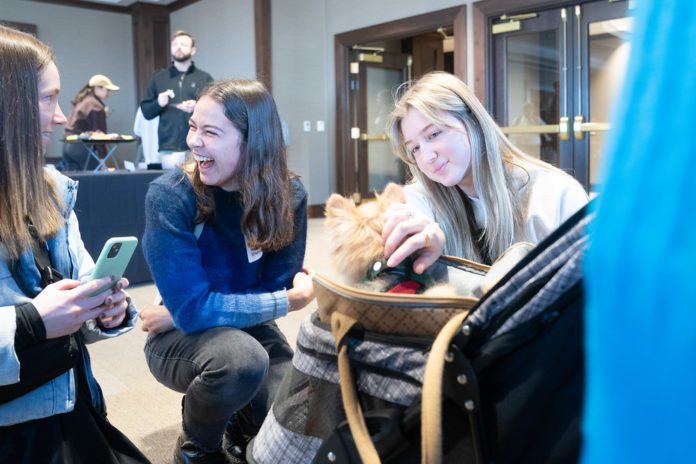May is National Mental Health Month, conducted by the National Alliance on Mental Illness (NAMI) to raise awareness around mental health and the devastating effects that trauma can have on the mental, emotional and physical health of those who experience it. This year, NAMI is celebrating Mental Health Month with the “More Than Enough” campaign, designed to emphasize the inherent worth of every person and encourage them to know that they are more than enough as they are.
Belmont’s Pathway 3 on the Strategic Trajectory to 2030 emphasizes the University’s commitment to promoting whole-person wellness through an integrative approach to health and wellbeing, as the health and wellbeing of each member in the Belmont community is integral to the whole of our community. Through creating environments of belonging, Belmont encourages students, faculty and staff to lead healthy lives which ultimately culminates in every person developing their own sense of vision and purpose.
“Mental health is a key component of holistic health and well-being,” said Pathway 3 catalyst and director of Be Well BU, Adam Pace. “Our mental health has a tremendous impact on all aspects of our wellness, so it is important to be aware of how other dimensions of wellness impact our mental health and emotional well-being. Mental health does not exist in isolation from these other factors, and at Belmont we always strive to address the wellbeing of the whole person.”
Belmont offers numerous resources for navigating mental health struggles and maintaining overall mental wellness.
Students are able to schedule an initial appointment with a Belmont clinician to talk through what plan of care makes sense for them. Appointments are offered in person and online as Belmont takes a personalized, flexible care approach that provides free and easy access to short-term mental health care.
Free, confidential mental and physical health support is available 24/7 to all students through Timely Care, which can be accessed through the MyBelmont portal.
Students, faculty and staff can check in with their mental health through TAO (Therapy Assistance Online), a free and private self-help resource. TAO offers a guided self-assessment and tools designed to help process stress, anxiety, depression and more.
Finally, Belmont offers a list of additional resources designed to help students, faculty and staff find access to mental health care in the Nashville area.
Belmont encourages the University community to take National Mental Health Month as a chance to engage more fully in developing and maintaining mental wellness, in the hopes that these habits will continue far past this month alone and establish healthy mindsets for a lifetime.



